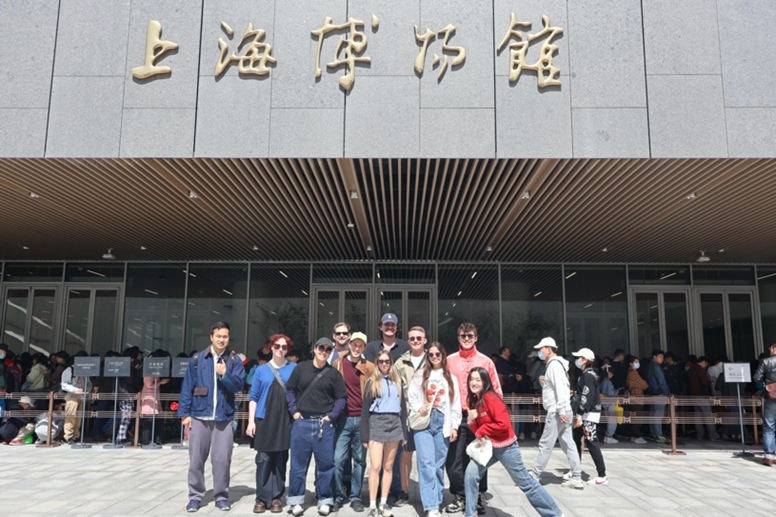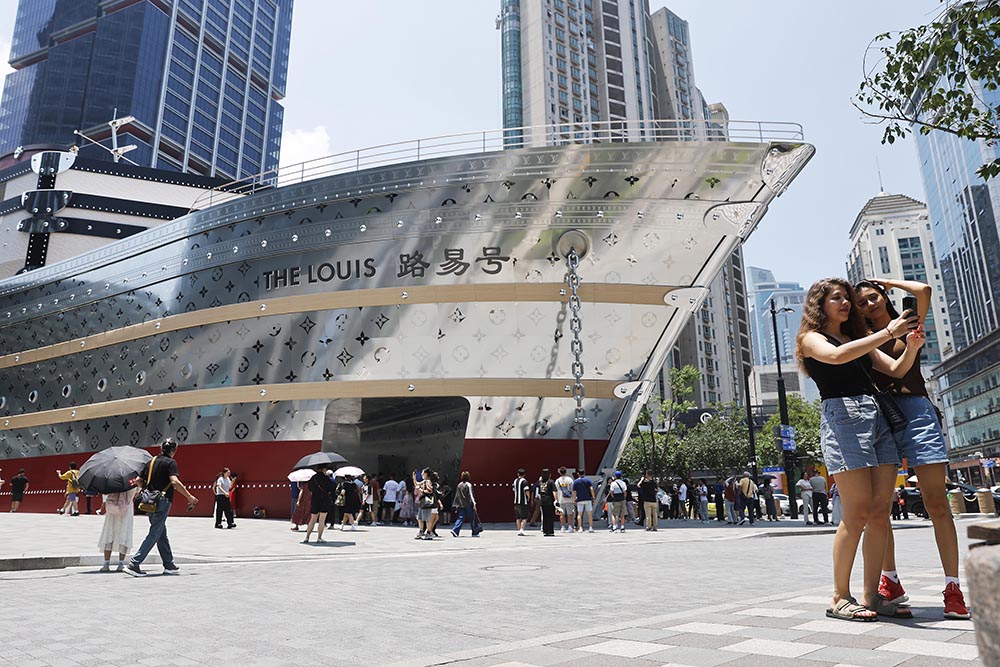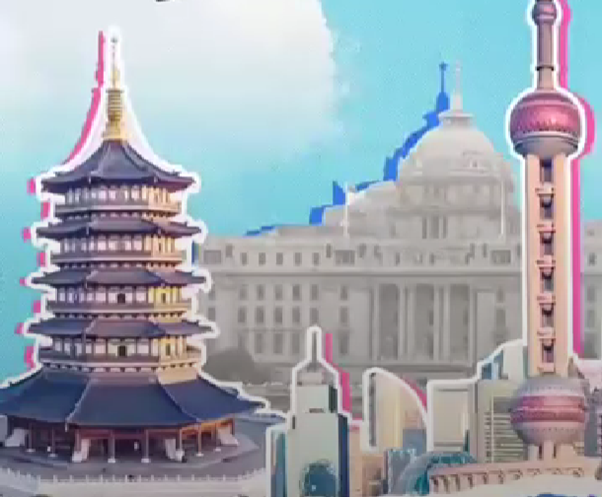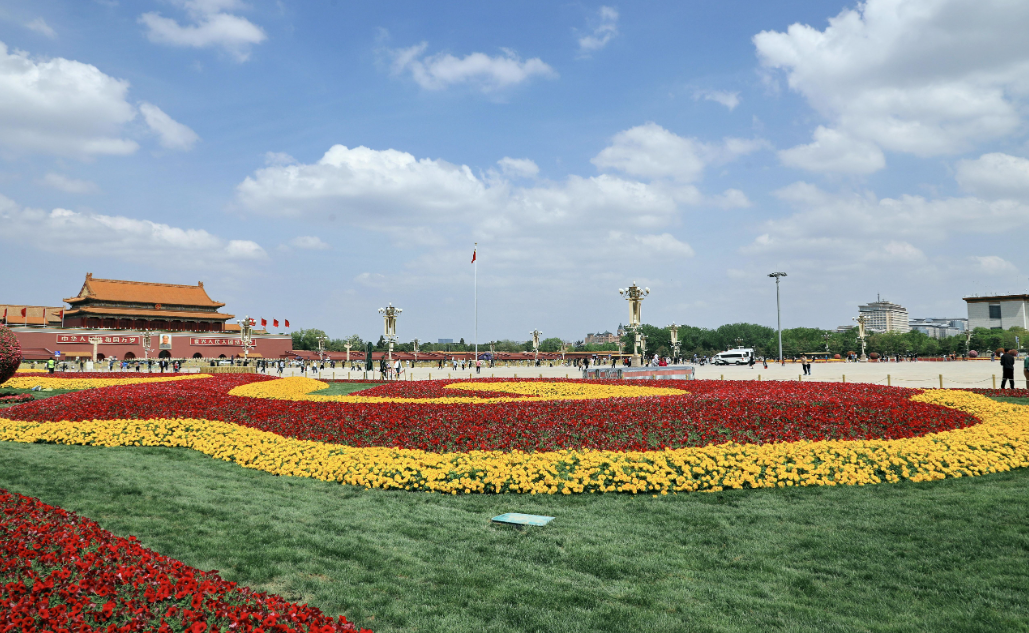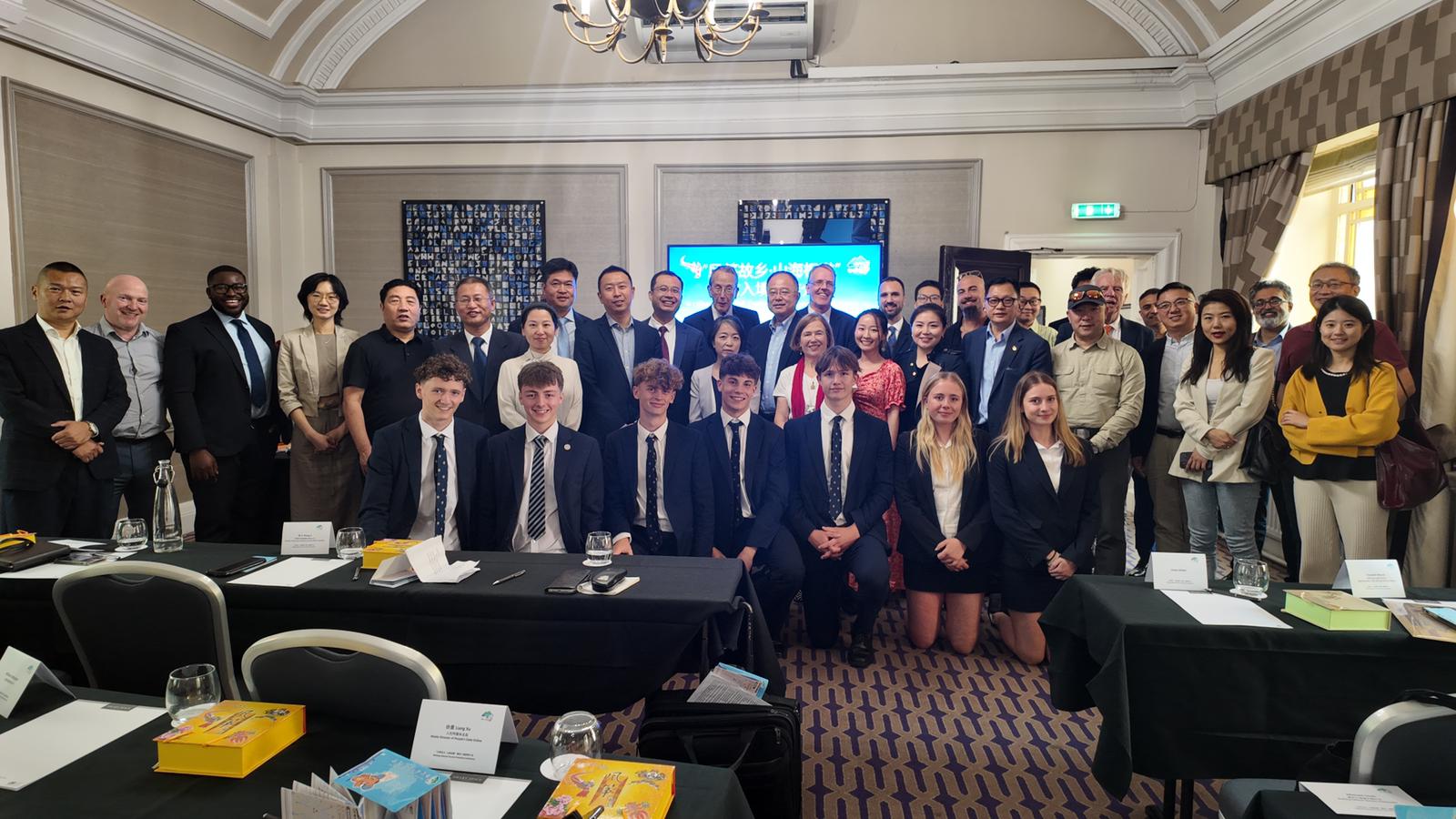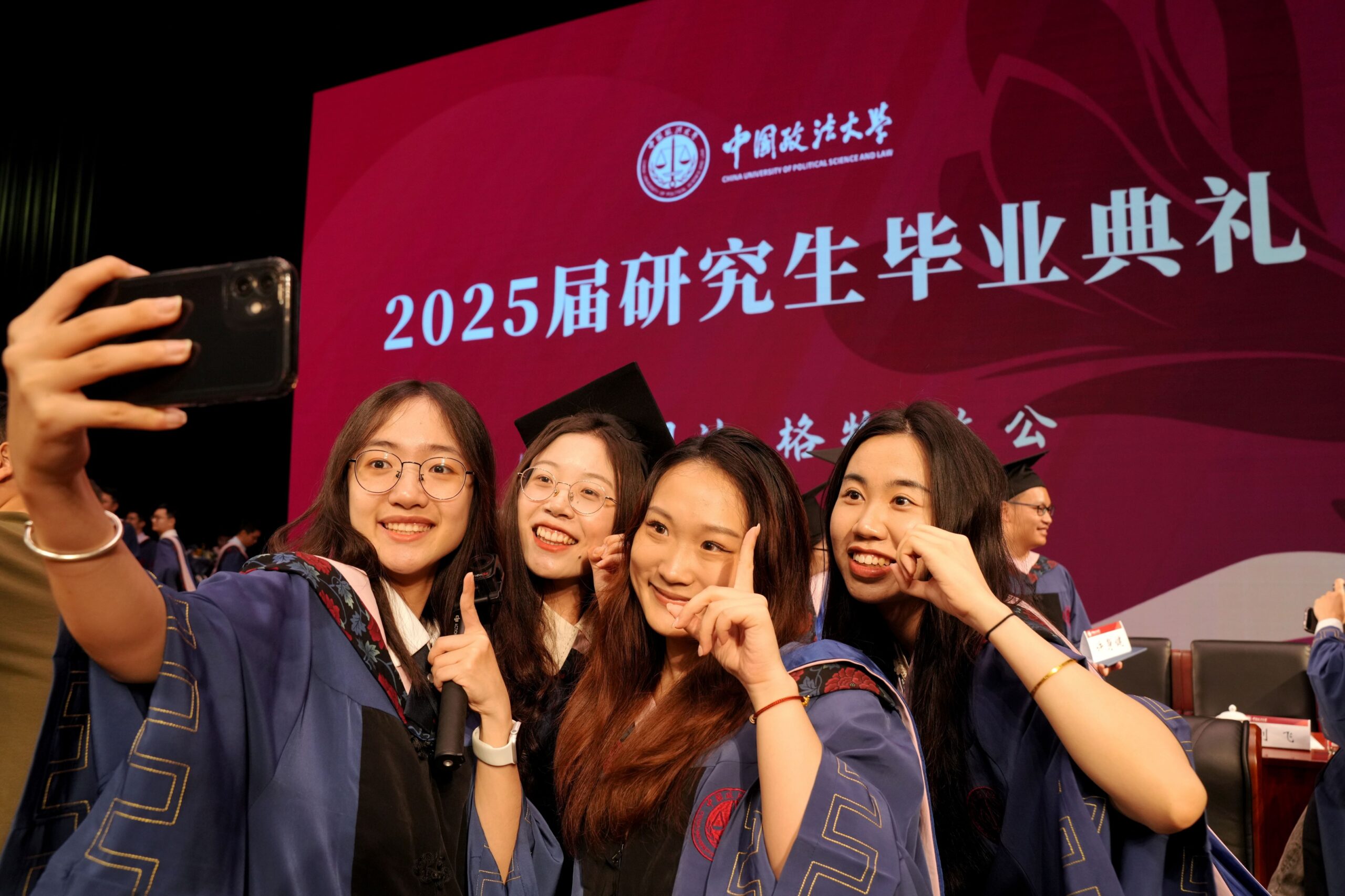On April 13th the Young Explorer Program, which offers a chance for Western young people to see China, set off for its first full day of exploring as the group got to pick their own adventure.
The 22 young people on the program split into two groups and set out on their self-selected routes – one focused on historical sites and the other art and nature. Between them, they explored Shanghai’s historical heritage and natural charm, but also enhanced their understanding of Chinese culture.
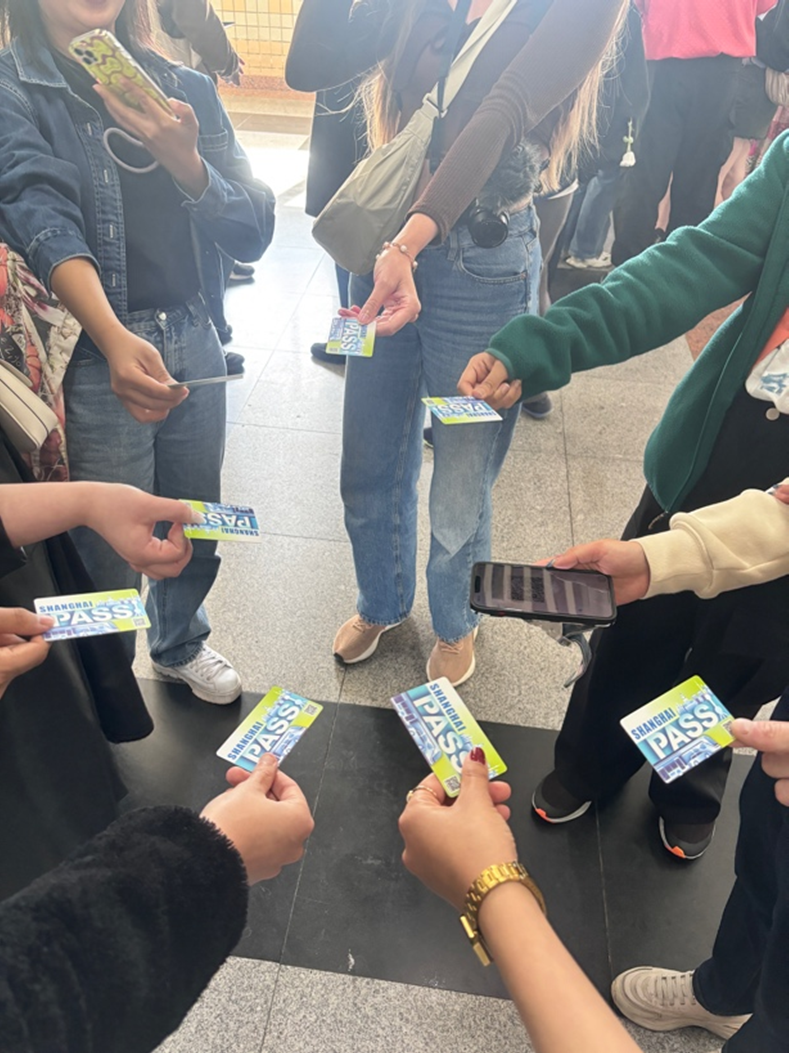
Exploring Shanghai’s Heritage
For the first group, their itinerary took them from classic movies to traditional handicrafts and finally to Gothic architecture. In the morning, they explored the Shanghai Film Museum. The rich exhibits and interactive installations in the museum offer an insight into Shanghai’s past. In the “Cartoon” exhibition area, Maria from Pakistan said: “These cartoons are so cute, I like them a lot, and they make me feel the unique charm of Chinese animation.” Another Young Explorer Irene asked the local volunteers: “Can you recommend an interesting Shanghai movie? We want to watch it when we go back home in the evening.”
In true Chinese fashion, they made sure to Daka or ‘check in’ by taking Xiaohongshu style photos in the museum.
At noon, the next stop was Xintiandi. Before getting to the shopping, they tasted authentic Cantonese cuisine and bubble milk tea at Dongfadao Restaurant. One youth exclaimed, “The taste of this milk tea is so rich. Not only can you drink milk tea, but you can also add various small ingredients. It completely changes milk tea!” After the meal, some of the local volunteers introduced Taobao after they were asked where do they normally buy clothes. Everyone took out their mobile phones to download the Taobao APP and asked the volunteers to teach them how to use it. Maria said excitedly: “I have always wanted to buy a Chinese horse-faced skirt. Can I buy it on Taobao?”
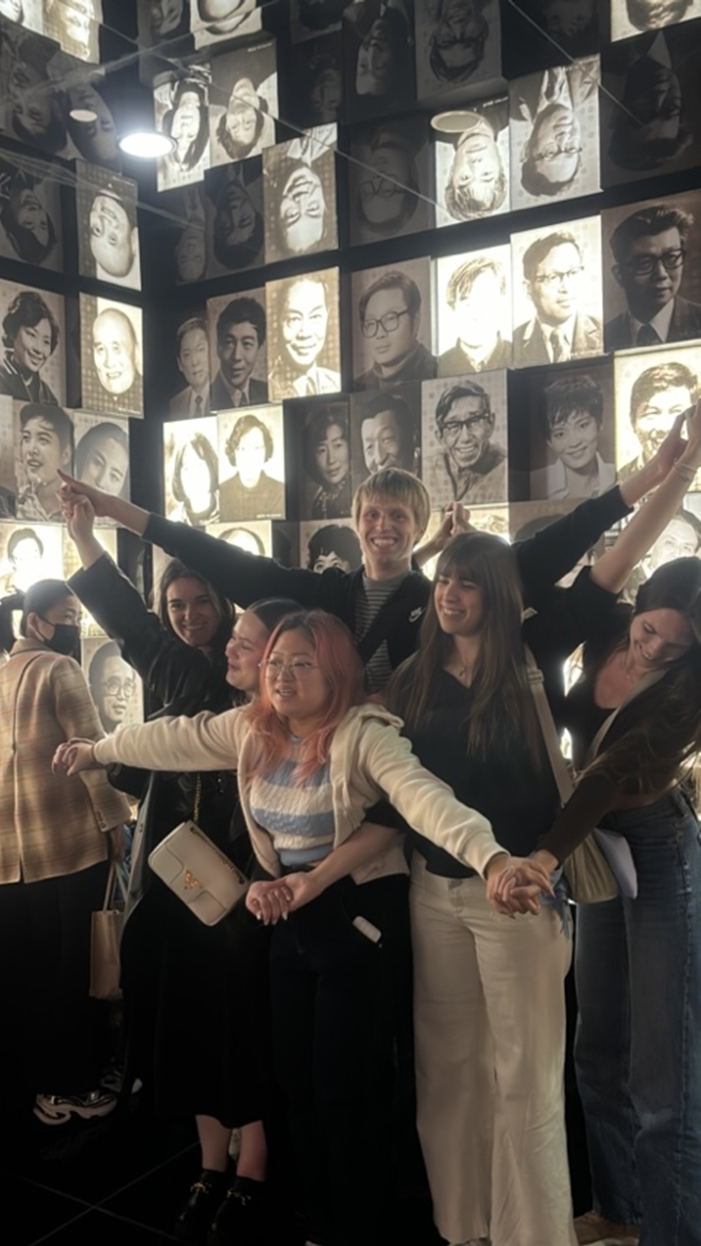
At the next destination of Tianzifang a local volunteer explained in front of the White Rabbit Toffee Shop that “This is the candy that Shanghai children have eaten since they were young, and it has been loved for decades.” Several of them even bought White Rabbit handbags as souvenirs and candy to taste. When visiting a cultural and creative store, Thomas, who studies Chinese, was deeply attracted by the cards printed with Chairman Mao’s quotations. He said, “I am very interested as these quotes are related to what I have learned. I must buy one!” In Tianzifang, the young people not only experienced the production of traditional handicrafts but also felt the creativity of modern art. A blend of Shanghai’s heritage and modernity.
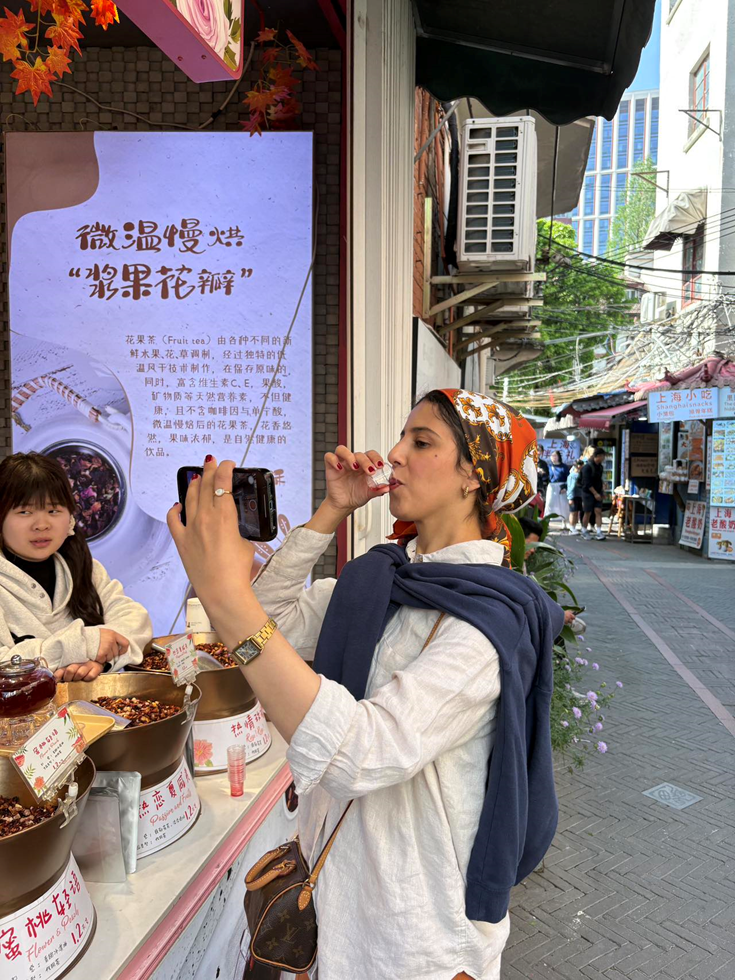
Afterwards, the next destination was foo’mart at East and West Park. The Young Explorers took a group photo in front of the iconic “Shanghai” background wall before heading upstairs to visit Xujiahui Academy. Renowned as Shanghai’s “most beautiful library”. The final stop was Xujiahui Catholic Church. This Gothic building was solemn and majestic, a perfect end to today’s cultural journey.
Connecting with Art and Nature
As for the art and nature team, their first stop was the East Hall of the Shanghai Museum. The Hall’s concept is “dialogue with the world, telling the story of China”. It focuses on thematic exhibition areas such as bronzes, calligraphy, paintings, and seals, and systematically displays the historical context of Chinese civilization. In the ceramic exhibition area, Isabelle from the UK was deeply attracted by the craftsmanship and aesthetics of Chinese ceramics: “The ceramics here are not only really big, but the innovations in glaze color and shape are far beyond my imagination.”
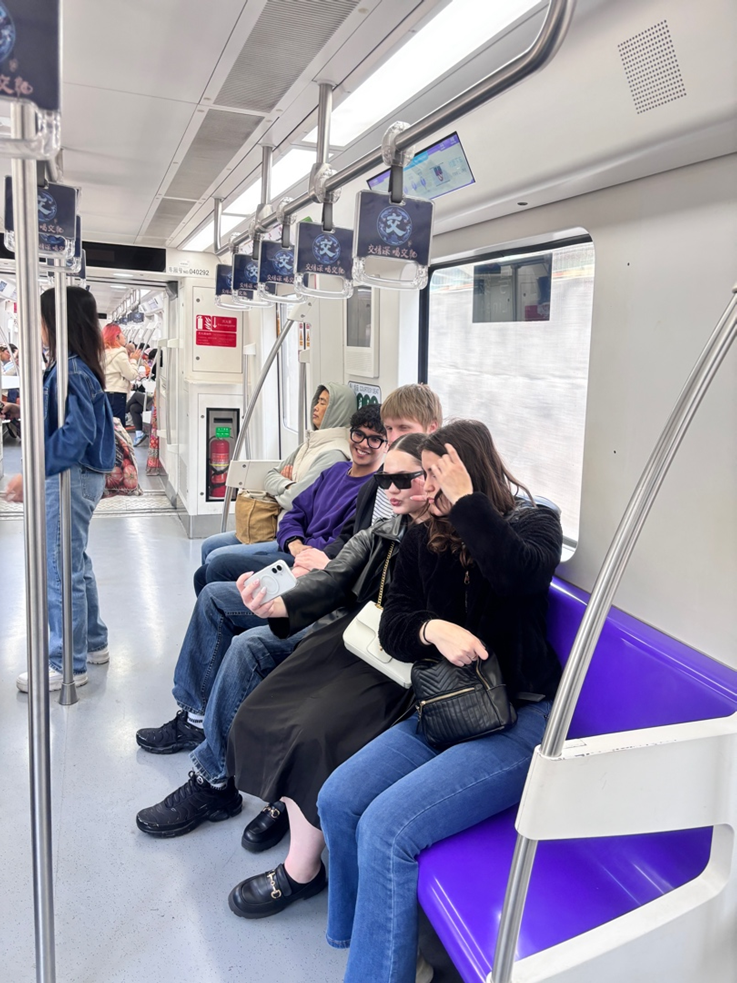
The calligraphy and painting exhibition area showcases the freehand spirit of Chinese art through treasures such as the copy of “Lanting Preface” and Ming and Qing Dynasty landscape paintings. Amelia from the UK has a special liking for traditional long scroll paintings: “The traditional composition and character relationships in these works remind me of the narrative exploration in my own creations, which inspired my creative concept.”
The Young Explorers also praised the community nature of the museum. Amelia said: “There are audiences of different ages gathered here, from children to the elderly, and everyone is discussing the exhibits enthusiastically. This vitality makes art no longer exclusive to the elite, but a part of urban life.” Isabelle added: “The modern sense of the building and the antiquity of the exhibits create tension, as if history is being re-told in a new language.”
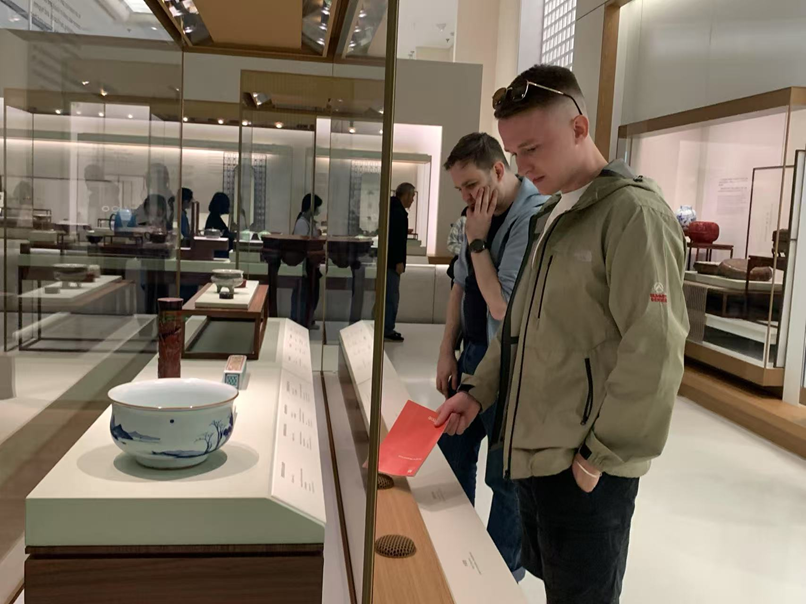
In the afternoon, the next stop was Shanghai Century Park. As the largest ecological green space in the city center, the 7-kilometer green trail in the park winds through the cherry blossom forest, Jingtian Lake and other landscapes. It was the flower season, with the Huangmuxiang waterfall pouring down, the poppies swaying in the wind, and the hydrangeas in clusters, providing a beautiful backdrop to everyone’s exploration. The group strolled along the waterfront, feeling the harmonious coexistence of the city and nature. Some lay on the grass, others go boating on Jingtian Lake, or have a glass of craft beer and relax in the spring weather.
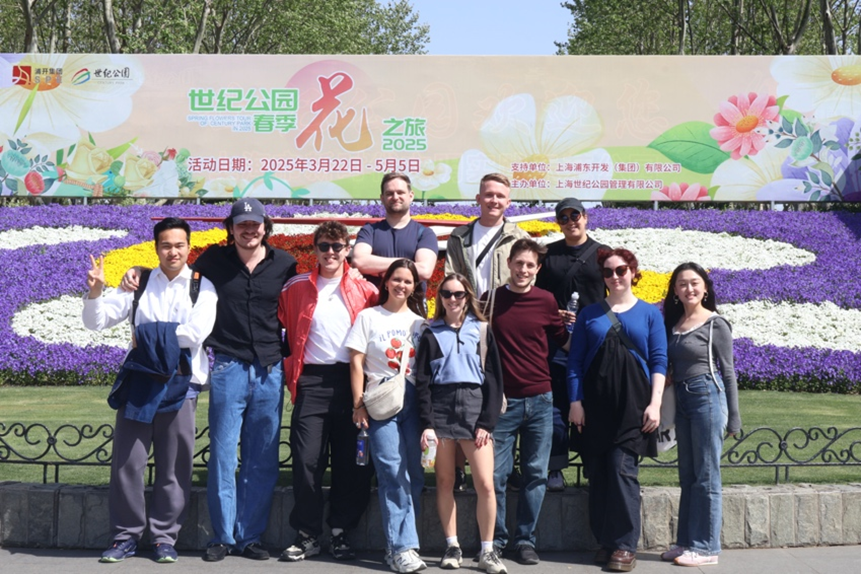
As night fell, the next stop was Fun Collection market to show off their bargaining skills. This 800-meter-long shopping street brings together more than 200 stores, covering a variety of specialty products such as clothing, cultural and creative products, and specialties. Matthew put his fluent Chinese to use becoming the “bargaining king”. He spent only 160 yuan to buy goods with an original price of 660 yuan, including audio equipment, headphones and other electronic products for himself and the young people in the team. Eliot chose a scarf with Chinese characteristics as a Christmas gift for his grandmother in Europe.
This visit not only allowed Western young people to appreciate Shanghai’s diverse urban landscape, but also built a bridge for cultural exchanges between China and foreign countries. From millennium cultural relics to urban shopping, Shanghai is telling its own story to the world’s young people with an open and inclusive attitude.

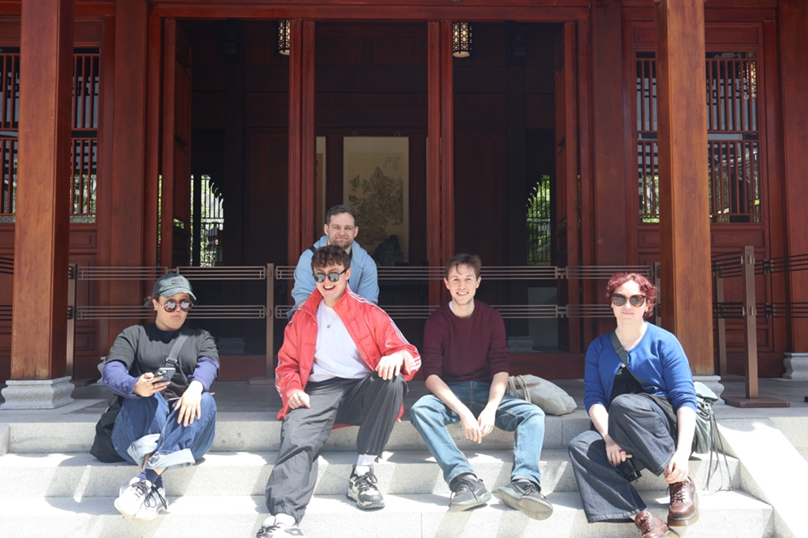

Written by Muslima Abduwalih and Keren Cai, edited by Liangyi Yu. If you liked this article why not read: Spot China Young Explorer Program Sets Off to Shanghai and Hangzhou

